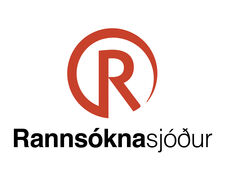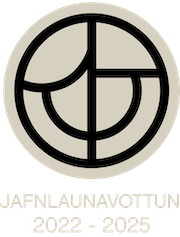Framleiðsla verðmætra efna úr þangsykrum með hjálp hitakærra baktería - verkefni lokið
Fréttatilkynning verkefnisstjóra
Markmið verkefnisins var að nýta hitakærar bakteríur af ættkvíslinni Thermoanaerobacterium til þess að umbreyta niðurbrotsafurðum þangsykra í verðmæt efni. Eitt af mikilvægustu verkefnum líftækninnar í dag er að þróa hagkvæma framleiðslu á verðmætum efnum úr ódýrum lífmassa.
Yfirlit
Margar hitakærar örverur geta brotið niður margvíslegar fjölsykrur úr plöntum og þörungum á skilvirkan hátt og gerjað og nýtt niðurbrotssykrurnar. Í verkefninu voru lífeðlisfræðilegir eiginleikar framleiðsluörveranna rannsakaðir og erfða- og umritunarmengi greind í þeim tilgangi að greina efnaskiptabrautir og þau ensím sem þar koma við sögu. Í kjölfarið var erfðaverkfræði beitt til þess að útbúa framleiðslustofn eða frumuverksmiðu, sem nýtt getur þangsykrur og breytt þeim í verðmæt efni t.d. 2-keto-3-deoxyaldonic acid (KDG) eða 1,2-própandíól en bæði efnin eru notuð sem grunnefni t.d. við framleiðslu margvíslegra niðurbrjótanlegra fjölliðuefna. Samhliða voru þróuð erfðatæknitól og tæki sérhæfð fyrir hitaþolnar bakteríur. Verkefnið var þáttur í að nýta einstakar erfðaauðlindir á Íslandi og auka verðmæti afurða úr lífmassa sem fellur til. Þetta verkefni tengist markmiðum og stefnumótun Matís og Háskólans á Akureyri í líftækni er miða að því að þróa „grænan“ lífefnaiðnað á Íslandi er byggir á sjálfbærri uppsprettu lífmassa.
Niðurstöður verkefnisins hafa leitt til nýrra rannsóknar- og þróunarverkefna sem tengjast líftækni og nýtingu þangs. Má þar nefna: “Verðmæti úr þangi með hitakærum bakteríum” – Antoine Moenaert, doktorsverkefni við Háskóla Íslands styrkt af Rannsóknarsjóði og Thermophilic CrispCas9 system (Dr. Björn Þór Aðalsteinsson) rannsóknarverkefni styrkt af Rannsóknasjóði; Smíði frumuverksmiðja verður haldið áfram í þessum verkefnum.
Niðurstöður verkefnisins hafa verið nýttar í öðrum verkefnum sem tengjast þangvinnslu og lífmassaverum. Má þar nefna: MacroFuel (H2020); MacroCasCade, BBI verkefni and Thermofactories, Era-Net verkefni. Niðurstöðurnar hafa hjálpað til og flýtt fyrir framgangi verkefnanna. Hluti af Thermofactories verkefninu gekk m.a. út á kerfislíffræðirannsókn við Háskóla Íslands á frumuverksmiðjunni Thermoanaerobacterium AK17 sem byggðist á notkun omics gagna sem aflað var í Macroalgal biorefinery.
Sótt hefur verið um einkaleyfi (forumsókn) á KDG framleiðslukerfinu sem þróað var m.a. innan ramma Macroalgal biorefinery verkefnisins. Áframhaldandi vinna sem snýr að uppskölun kerfisins er í undirbúningi og búið er að sækja um styrk til Tækniþróunarsjóðs þar að lútandi. Markmiðið er að byggja upp lífmassaver sem byggir á viðkomandi framleiðsluferli.
English
The goal of the MACROALGAL BIOREFINERY was to develop a robust thermophilic biorefinery platform for economic exploitation of macroalgal feedstock. In the light of impending fossil fuel shortage, the development of efficient bio-conversion platform for such biomass may be one of the most important tasks of industrial biotechnology today. Macroalgae is an “unconventional” and challenging feedstock resource but also providing a range of novel mono-sugar substrates increasing the range of possible value-added products of industrial interests.
The project was based on previous research on thermophilic organisms and knowledge on their capabilities gained by experts at Matís and the University of Akureyri in previous R&D projects
In the project, the omics technologies, including genome and transcriptome sequencing, and downstream bioinformatic analysis, was successfully used to resolve the metabolic pathway of alginate utilization in marine bacteria and the production pathway of the valuable commodity chemical, 1,2-propanediol in selected anaerobic fermenting strains. Subsequently, a cell factory system based on the thermophilic anaerobic strain, Thermoanaerobacterium AK17, was designed and engineering experiments were started for the conversion of macroalgal derived carbohydrates to the valuable commodity chemicals. Engineering production of the alginate derived compound 2-keto-3-deoxyaldonic acid (KDG) was successfully achieved. Engineering 1,2-propanediol was partially accomplished and is still ongoing. Concurrently, genetic tools for engineering the target strain were developed and used in the project. An important deliverable of the project was a thermophilic CrispCas9 tool enabling engineering thermophilic organisms (manuscript submitted). Another important output was a provisional patent on production of KDG, applying enzymes of the alginate utilization pathway. Extensive work was carried out in the project and extremely important results were delivered which may contribute to future build-up of macroalgal biorefinery in Iceland, based on utilizing the recalcitrant polysaccharide resources from macroalgae as feedstock
Based on the results further projects have been initiated, e.g.: “verðmæti úr þangi með hitakærum bakteríum” Phd project – Antoine Moenaert and Thermophilic CrispCas9 system (Dr. Björn Þór Aðalsteinsson) both supported by IRF. The metabolic engineering work started in Macroalgal biorefinery will be continued in these projects.
Results from the project have supported work in other ongoing macroalgae project and contributed to synergy, e.g.: MacroFuel (H2020); MacroCasCade, BBI project and Thermofactories, Era Net project. System biology study was performed on AK17 in Thermofactoris, with University of Iceland, based on the omics data collected in this project (Macroalgal biorefinery).
A provisional patent application on the KDG production system developed on a laboratory scale in this project has been submitted. Work involving upscaling of the system is in preparation. Proposals for funding have been submitted, to the Technological Research Fund. The goal is to establish a biorefinery based on the process.
A list of the project’s outputs
Papers:
· Ingvadottir, EM., Scully, SM., Orlygsson, J. 2018. Production of (S)-1,2-propanediol from L-rhamnose using the moderately thermophilic Clostridium strain AK1. ANAEROBE 54:26-30
· Ingvadottir, EM., Scully, SM., Orlygsson, J. 2018. Dataset describing ethanol and 1,2-propanediol production by a stenothermal moderately thermophilic anaerobe, Clostridium strain AK1. DATA IN BRIEF. 20: 649-657
· Chades, T., Scully, SM., Ingvadottir, EM., Orlygsson, J. 2018. Fermentation of Mannitol Extracts From Brown Macro Algae by Thermophilic Clostridia. FRONTIERS IN MICROBIOLOGY. 9: Article Number: 1931
· Ingvadottir, EM., Scully, SM., Orlygsson, J. 2017. Evaluation of the genus of Caldicellulosiruptor for production of 1,2-propanediol from methylpentoses. ANAEROBE. 47:86-88.
· Bjorn Thor Adalsteinsson*, William Merre, Olafur H. Fridjonsson, Gudmundur O. Hreggvidsson. 2018. Thermostable sgRNA-guided Cas9 nuclease system with novel PAM specificity. PLOS ONE Submitted.
Patent:
· Gudmundur O. Hreggvidsson and Olafur H. Fridjonsson. 2018. Methods for Enzymatic Processing of Polysaccharides from Brown algae. Provisional patent application
At least three different papers affiliated with this project and the PhD project of Antoine Moenaert on macroalgal utilization and conversion into valuable projects, are in preparation.
Heiti verkefnis: Framleiðsla verðmætra efna úr þangsykrum með hjálp
hitakærra baktería/Macroalgal Biorefinery - Microbial
conversion of seaweed polysaccharides into a valuable commodity chemical
Verkefnisstjóri: Ólafur Héðinn Friðjónsson, Matís
Tegund styrks: Verkefnisstyrkur
Styrktímabil: 2015-2017
Fjárhæð styrks: 30 millj. kr. alls
Tilvísunarnúmer Rannís: 152490


